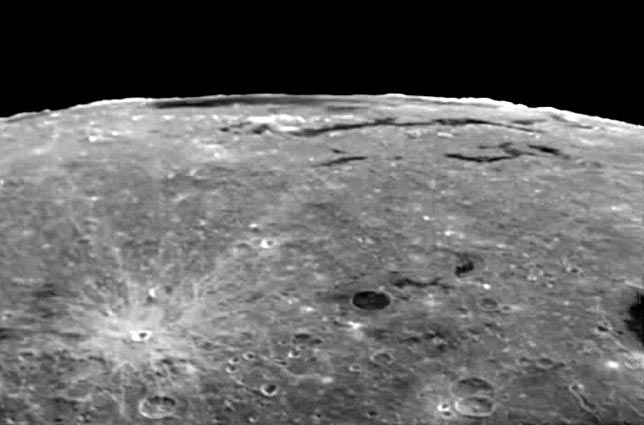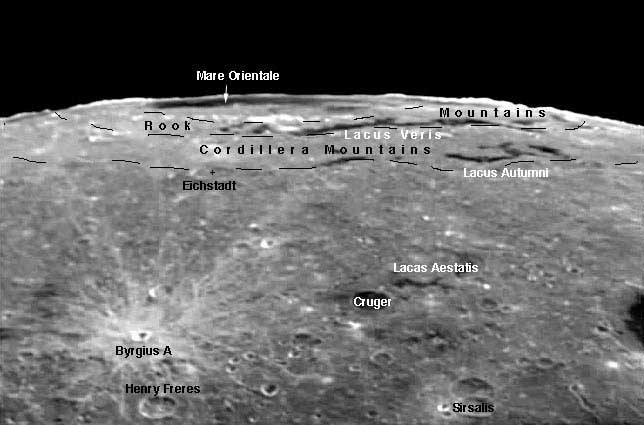Difference between revisions of "August 3, 2004"
| (One intermediate revision by the same user not shown) | |||
| Line 1: | Line 1: | ||
__NOTOC__ | __NOTOC__ | ||
=Still on the Limb= | =Still on the Limb= | ||
| + | <!-- Start of content --> | ||
<br> | <br> | ||
<table width="85%" border="0" align="center" cellpadding="6" cellspacing="2"> | <table width="85%" border="0" align="center" cellpadding="6" cellspacing="2"> | ||
| Line 54: | Line 55: | ||
</table> | </table> | ||
<p> </p> | <p> </p> | ||
| − | + | <!-- End of content --> | |
| − | + | {{wiki/ArticleFooter}} | |
| − | |||
| − | |||
| − | <!-- | ||
| − | |||
| − | |||
| − | |||
| − | |||
| − | |||
| − | |||
| − | |||
Latest revision as of 18:22, 7 February 2015
Still on the Limb
Image Credit: Fred Ringwald |
|
Still on the Limb Last year when historically great librations were tilting the west limb of the Moon into view, Fred Ringwald took this high sun image of the Orientale Basin. Now do you see why I am always encouraging people to observe when the sun is high? The dark patches of mare stand out clearly, showing where mare basalts have leaked to the surface, and providing aids to navigation. Just to the right, mostly out of the image, is dark-floored Grimaldi, and right in front of Orientale are the peculiar dark-floored crater Cruger and the nearby seepages of Lacus Aestatis. On first looking near the limb the basin rings aren't apparent, but if you remember that the ribbon-like Lacus Veris and Lacus Autumni occur just inside the rings you can begin to glimpse them. The Cordillera is the best preserved basin rim on the Moon and the Rook ring is also very well defined. Apparently, the two lacii are mare material that rose up the basin ring faults. Notice that the texture inside the Cordillera ring is much smoother than outside the ring. Once you recognize that, you can trace out the boundary of the basin. And because we are looking near edge-on you can see variations in height of both the Rook and Cordillera ranges. What fun! Technical Details: Related Links: Yesterday's LPOD: Jupiter Graze Tomorrow's LPOD: A New Way to Image the Moon |
Author & Editor: |
COMMENTS?
Register, Log in, and join in the comments.





